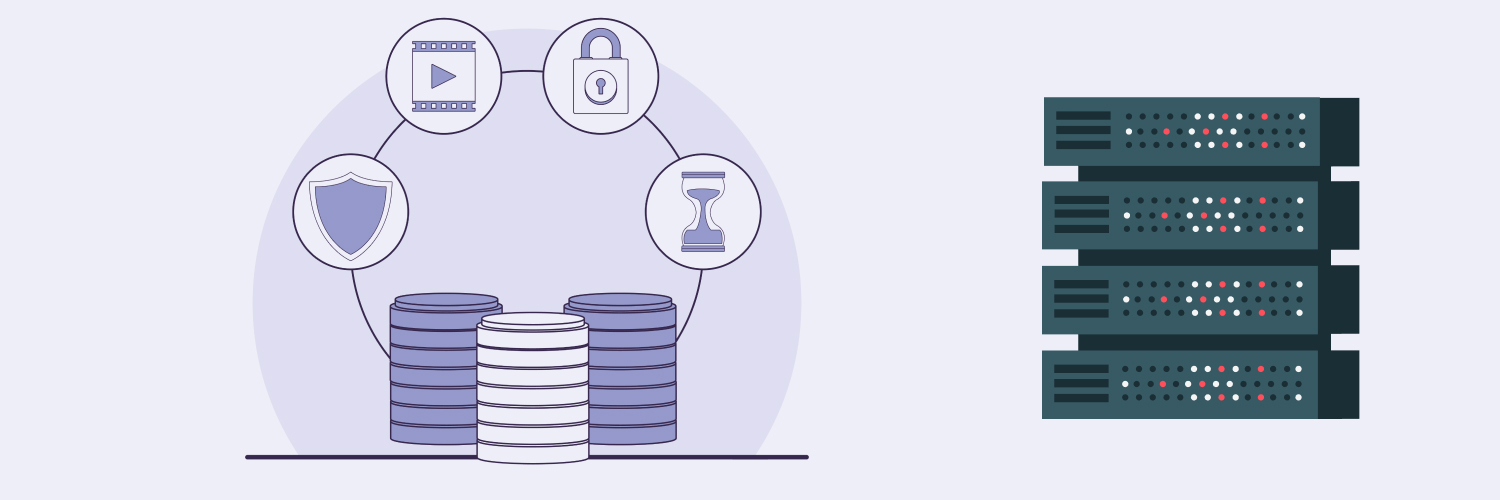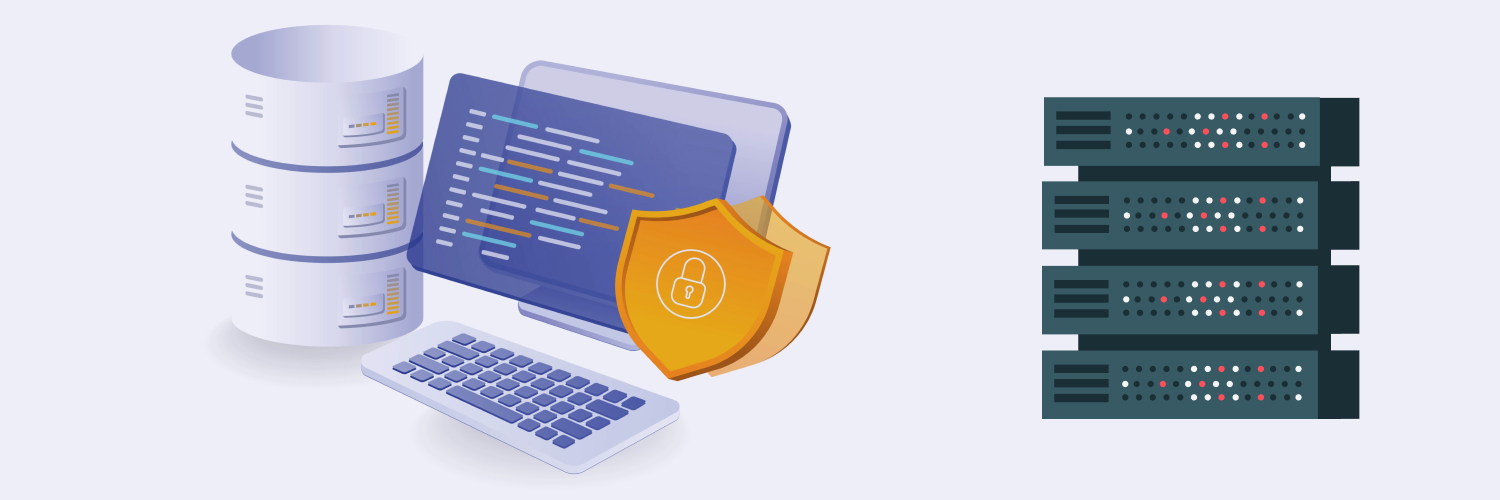Linux Proxies – Why You Need One and How To Set it Up
The Linux operating system is stable, fast, and convenient. It’s reliable, with a reputation for being safe from viruses, and it offers a user-friendly interface and structure that has been around for many years. Its open-source framework has allowed a huge community of users to blossom, and finding support from third-party developers is easy. It’s been a favorite among the techy set for years, and it’s a favorite for web hosting. Read more about Linux Proxies.
While many envision Linux users as some highly-trained computer experts alone in their office fiddling with Linux, it’s a strong option for casual users and businesses alike. Some may be wary of making the switch — perhaps because of an existing loyalty to or level of comfort with another OS, like Windows or iOS, and its programs. If you’ve got all your programs, games, settings, and proxies all installed the way you like them, why take on the hassle of switching? In reality, Linux’s offerings are comparable to other operating systems.
Whether you’re new to Linux or looking to upgrade your privacy and security on your existing Linux OS, setting up Linux proxies isn’t only possible — it’s extremely simple to get things up and running. Here, we’ll discuss why anyone running Linux needs a Linux proxy, and we’ll share a simple process for how to set one up.
What Is a Linux Proxy?

A proxy is a separate server you connect to while operating online. It masks your actual location, essentially taking your place and shows its own data rather than that of your device or web browser. The proxy displays its IP address and hides yours, allowing you to maintain greater privacy and security.
A Linux proxy does exactly that — and it does it on a Linux system. It protects your privacy and security while online. It gives you access to vast amounts of data while web scraping and can even provide region-locked content you would otherwise never have access to. Everything you do online happens through the proxy — including web searches, data scraping, video watching, or game-playing. Any return information also passes through this proxy, meaning the sites or services you visit only see the proxy to which they are connected. This provides unparalleled protection compared to using the internet openly from your device.
A Linux proxy operates within the Linux operating system. It is specifically designed for Linux and further protects your system from harm, on top of the protections a Linux-based system already offers.
What is a proxy server in Linux?
Many people ask whether there is a difference between a proxy and a proxy server. In actuality, there is no real difference. A proxy is an intermediary server between your device or server and the web page you visit. It routes traffic within a particular network, like the internet. It acts as a middleman between your machine and another.
Why Do You Need a Linux Proxy?

There are many reasons to use a Linux proxy when operating online — from protecting privacy to increasing the amount of data you can access.
Protecting your privacy
One of the primary benefits of Linux proxies is its privacy. It keeps you completely anonymous online. A proxy masks your internet protocol (IP) address from others, whether other companies or individuals. You may not want others to see your server or device location and may want to protect your information from others online, both for personal and business privacy reasons.
Online privacy is a constant battle. While some states and countries try to legislate online data privacy, it’s wise not to rely on others to follow data privacy laws and instead take steps to ensure your own online safety and security.
Data scraping
Linux proxies are incredibly helpful when data scraping. They can set you up to be able to pull massive amounts of data automatically. A proxy works alongside a web scraping tool, such as one programmed in Python, to traverse various websites and collect data. The web scraper collects this data and puts it into a usable format.
A Linux proxy works seamlessly with the web scraper. A good proxy solution provides multiple IP addresses, and you can take advantage of them all while using the same device. This helps prevent your proxy server from getting blocklisted or banned while performing its web scraping work. It also provides you with the privacy and security protections a proxy always gives you.
If another web server detects data scraping, it may attempt to ban your access to the website in the future. Using different IPs through the proxy keeps your access open and the data flowing in. Companies often use web scraping for:
- Price comparisons and pricing tracking
- Search engine optimization (SEO) tracking
- Customized marketing
- Ad verification
Online security
A Linux proxy offers your Linux OS a great deal of added security. Other websites do not know your device is accessing them because they run through a proxy server and receive a different IP address. These sites cannot geolocate or learn critical information about you or your device.
A proxy also acts like another firewall. Cyber attackers cannot access your device or personal servers when you’ve masked your IP and location. It is nearly impossible for these dangerous parties to infiltrate the data on your system or get through your internet connection. As security concerns increase online, a Linux proxy gives you the combined security features of the Linux OS and a Linux proxy.
Region-locked content online
Many countries and regions have restrictions on the content they offer. Some data will be locked and unavailable if your IP address comes from within a region that restricts access to it. In other cases, copyright regulations may prevent you from accessing some content if your IP address comes from a location outside of the one in which the content is intended to be available. Either way, a Linux proxy can grant you access to region-locked content that would otherwise be unavailable to you.
Because a proxy acts as the go-between between your server and the region-locked website, the site only sees your proxy. If your proxy IP fits within the permitted region, the website will think you’re located within an approved location, and it will grant you access to that previously locked data. You are not stuck with the limitations of your physical location when you use a Linux proxy.
How To Set Up Your Linux Proxy

You must set up your Linux proxy correctly to get its full benefits. While some proxy hosts require you to follow specific step-by-step instructions, Linux has a simple process to help you set up your proxy and get to work right away.
Access the environment file
Start by opening your Terminal. Once you have access, sign in as the root user. Otherwise, you will be unable to change or access your proxy settings. After that, use nano to access your /etc/environment file.
You can set a temporary HTTP proxy environment variable by opening the terminal and using this command:
| export http_proxy=”http://proxy-server-ip:port/” |
You will then replace “proxy-server-ip” with your proxy’s IP address. You will then replace “port” with your port number.
For HTTPS, use this command instead:
| export https_proxy=”http://proxy-server-ip:port/” |
Use the same replacement strategy as described for the HTTP setting. Remember, each setting is temporary and will reset when you log out or leave your terminal.
Setting up a permanent proxy
You can store proxy settings in a configuration file within Linux. To do this, open a terminal and enter this command to create a configuration file:
| touch ~/.bashrc_proxy |
Use the text editor to open this new file. Then you can add the following lines, but replace “proxy_ip” and “proxy_port” with the applicable values:
| export http_proxy=”http://proxy_ip:proxy_port” |
| export https_proxy=”http://proxy_ip:proxy_port” |
You can then save and exit the file.
Applying your new settings
Now that you have created your settings, it is time to apply them. To do so, execute this command in the terminal:
| source ~/.bashrc_proxy |
Your proxy settings should take effect.
What Is a Linux HTTP Proxy?

Most professionals think of an HTTP proxy first, as in a Linux HTTP or HTTPS proxy. HTTP allows files to transfer between clients and servers on the internet.
This protocol has evolved throughout the years, and the Linux HTTP proxy makes it easy to search the internet. An HTTPS proxy provides a secure connection compared to a simple Linux HTTP proxy. Most proxies now utilize HTTPS format because more sites seek and even require security.
HTTP and HTTPS
An HTTP or HTTPS proxy is most commonly used to visit web pages. They let you visit websites without revealing your personal information or that of your device. They protect your location, IP address, and much more, no matter where you visit on the internet.
Search engines became especially serious about shifting over to the secure protocol around 2014. Pages that did not switch over found themselves losing in the search engine rankings. Proxies had to adapt to keep up, but both HTTP and HTTPS proxies still have their place.
The two protocols are essentially the same, but HTTPS enables encrypted connections for your server and your proxy. It is a more advanced protocol than HTTP and much more secure. It further protects sensitive information that cyber attackers may try to steal from your device or server. Many web pages use a redirect to avoid running on HTTP, and many industries must use the HTTPS protocol by applicable law.
Using an HTTPS proxy offers some advantages:
- It is safe for online banking and other sensitive topics.
- It is protected by secure socket layer (SSL) technology.
- It provides encrypted information to secure your information better.
Rayobyte can help you buy the HTTP or HTTPS proxy you need to protect your business and get the most out of your technology.
What Is a Linux SOCKS Proxy?

You may also have heard of SOCKS proxies. This is another type of internet protocol, just like HTTP or HTTPS. SOCKS stands for Socket Secure. These proxies mask a user’s IP address while they receive or transfer data and fulfill the same core function of keeping your online connection anonymous. You can use a SOCKS proxy to hide your IP address and location to bypass geolocation restrictions or bypass firewalls. Like other proxies, a SOCKS proxy also helps hide your identity any time you are online.
SOCKS is designed for a specific internet protocol and to handle the standardized rules governing how servers and browsers communicate with one another. Unlike HTTP or HTTPS proxies that only work with their like protocols, SOCKS proxies apply more universally. They are also more secure because they are built on multiple networking technologies, such as UDP and IPv6.
SOCKS in data collection
SOCKS proxies are highly popular in data collection. This is especially true for general-use data collection when you do not have a specific plan for what you intend to grab. A SOCKS proxy gives you the security and flexibility to handle massive amounts of data quickly and efficiently.
These proxies are especially popular because of their high speed. They make it simple to go from one site to another quickly and safely. Unlike a virtual private network’s encryption process, which can add a lot of time to your processes, a SOCKS proxy helps you keep a fast internet speed and still get all the benefits of the proxy.
Multiple IP addresses
Another key benefit of a Linux SOCKS proxy is that you will likely receive multiple IP addresses rather than one. The more IP addresses you can access, the less likely you will be banned from using specific websites. This is especially helpful for companies doing web scraping and data collection.
Other businesses may offer a VPN with a single IP address, making collecting the data you want challenging. In all likelihood, this IP address will eventually get banned, meaning you must get a new IP address by requesting it from the VPN provider. At Rayobyte, we anticipate your needs and help you move past the limitations of a VPN or single-IP option.
How To Check If Your Proxy Is Working or Not in Linux

Once you install a Linux proxy, double-check that it works, if only for your peace of mind.
To verify that your proxy settings are working correctly, you can use the “curl” command.
| curl -l http://google.com |
You will see a standard HTTP or HTTPS response if the proxy works as it should. If it is not, you might see a connection error. If you are trying to handle your own proxy or one from an untrustworthy source, you may run into this problem more often.
Rayobyte offers high-quality Linux proxies that work. We can ensure your proxy is operating correctly and you know how to make the most of it.
What Is the Best Linux Proxy?

There are a great many Linux proxy options on the market. To decide which is best for you, consider all of the following what you’re hoping to use it for, what it will get you access to, and how much you’re willing to spend.
Purpose of the proxy
Consider why you want the proxy to begin with. Are you a casual user, a small business, or someone planning on doing significant data collection and web scraping? Different goals may require different proxy solutions.
Regular users may want a Linux proxy for added privacy and security. They may use them to access region-locked materials on the web, such as streaming services or sporting events. They may travel and only want some people to know their location whenever they use the internet.
Business users often use a proxy for web scraping. For example, an e-commerce store may collect data about the comparative prices of the goods they sell. They need to track their competitors to stand a fighting chance in this competitive market. A Linux proxy can help avoid website bans and lack of access. Businesses may use rotating proxies to change IP addresses to avoid reaching the rate limit constantly.
Type of proxy
Public proxies or ones you can get free from the internet may seem tempting, but they are also tempting targets for cyber attackers and those who would harm you or your business. They have significant vulnerabilities that could leave you open to attack. Semi-dedicated or dedicated proxies are a much better option.
You can then choose between residential or data center proxies. Residential proxies are usually the best regardless of the purpose you will use them for. They have the lowest risk, and they are the most efficient. Data center proxies are used for tasks like web scraping and are typically assigned by data centers. Data center proxies offer bandwidth and speed, while residential proxies offer better anonymity and stealth.
You can also choose rotating IP addresses if you use a proxy for any web scraping to avoid hitting request limits on the websites you scrape.
Determine the number of proxies you need
The number of proxies you need will depend on your usage. Web scraping, for example, may require a large number of proxies or even proxy pools. Smaller businesses or individuals may need only one or just a few proxies instead.
Location
Proxies are subject to their location, so you need to choose what you need wisely. Multiple proxies help you have multiple “locations” from which you can collect data or access the internet. The number of locations and type of proxy you need will likely be determined by the locations you think you’ll need to access to meet your goals.
Most proxies in a single location give you access to large areas. For example, a US-based proxy will likely give you access to Mexico and Canada. European proxies will likely give you access to the European Union region.
Cost
Keep in mind your budget when picking a Linux proxy. Your budget likely depends on how you aim to use the proxy. If you are masking your IP and location for personal reasons, you may have a smaller budget, and lower-cost options may be sufficient for your needs. If you conduct wide-scale data collection for your business, you likely need a higher budget to get the most out of your proxy needs.
Ultimately, there is a proxy that fits your needs and your budget. The security, privacy, and ease-of-use benefits of Linux proxies far outweigh their cost and give you a great return on investment.
Final Thoughts: The Best Proxies for Linux

Rayobyte gives you access to the best proxies for Linux. We offer flexible and affordable plans that fit your unique needs. Our plans are designed for individuals, small businesses, large corporations, and more so that you have access to precisely what you need. You can choose between semi-dedicated, dedicated, rotating, and residential (ISP) Linux proxies.
Rayobyte provides the most diverse pool of Linux proxies at competitive prices. Our proxies offer many security and privacy benefits without the speed limitations imposed by other mainstream proxy options. We have the right choice for you.
Interested in learning more? Start your trial and check out our award-winning proxy infrastructure. We take your needs seriously and will work with you to pick the best Linux proxy for you.
The information contained within this article, including information posted by official staff, guest-submitted material, message board postings, or other third-party material is presented solely for the purposes of education and furtherance of the knowledge of the reader. All trademarks used in this publication are hereby acknowledged as the property of their respective owners.






